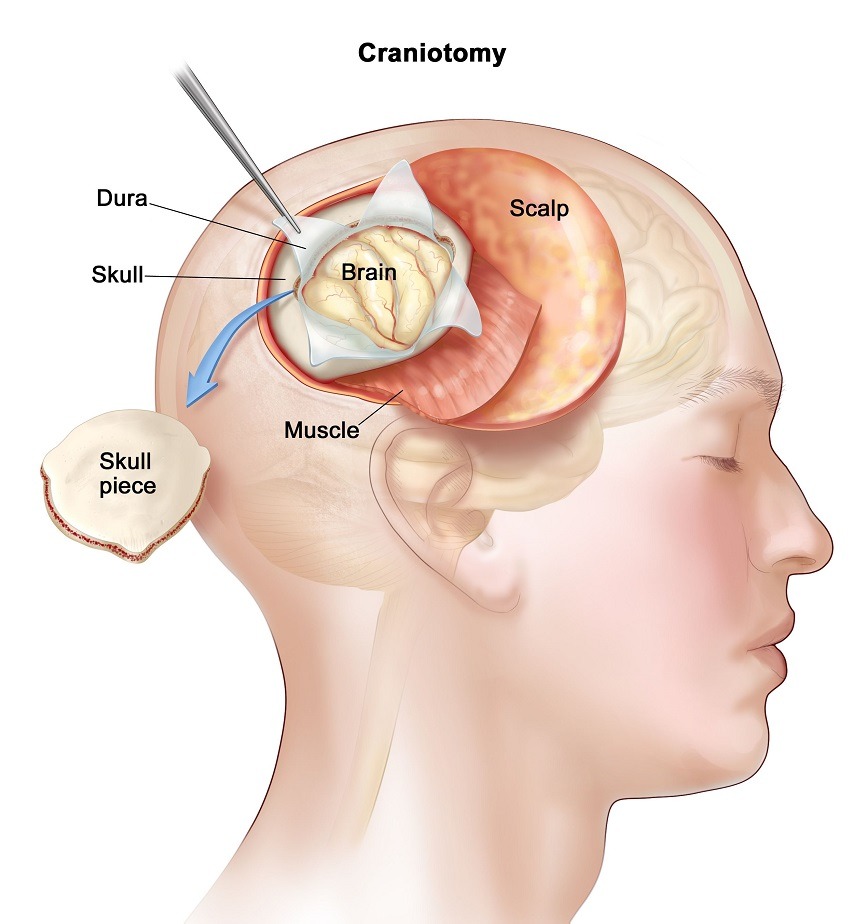When it comes to life-altering diagnoses, few sound as intimidating as a brain tumor. Yet with today’s medical technology and sophisticated care, treatment is more precise, efficient, and hopeful than ever. If you or someone you care about has just been diagnosed with a brain tumor, getting educated on your surgical options is an informed first step. In this blog, we’ll explore the latest in brain tumor surgery, including advanced treatment techniques available at Care and Cure Hospital, and essential information to help guide your decision.
Understanding Brain Tumors
What is a Brain Tumor?
A brain tumor is a collection of abnormal brain cells. Tumors may be benign (non-cancer) or malignant (cancer). Tumors vary greatly in types, sizes, and locations. The effects depend on what part of the brain is affected, and the rate at which the tumor is growing.
Symptoms
- Repeating headaches
- Seizure
- Vision or hearing loss
- Confusion or memory loss
- Slurred speech or loss of equilibrium
If you detect these signs, early diagnosis is essential. Detailed diagnostic imaging and neurological examinations are offered by Care and Cure Hospital to diagnose brain tumors at an early stage.
When Is Surgery Indicated for Brain Tumors?
Surgery is often the first choice, especially for tumors that are easily accessible and symptomatic. In many cases, the removal of as much tumor tissue as possible can significantly enhance survival.
Factors That Decide the Surgical Eligibility
- Tumor size and location
- Patient overall health
- Whether the tumor is compressing important brain structures or not
- Benign or malignant nature of the tumor
The Care and Cure Neurology Department team of experts works together to discuss each case in isolation and come up with the safest approach.
Top 7 Advanced Brain Tumor Surgery Techniques at Care and Cure
At Care and Cure, neurosurgeons employ a wide range of advanced surgical approaches tailored to tumor type, size, location, and patient health. Here are the top 7 brain tumor surgery techniques practiced at the hospital:
1. Craniotomy: The Gold Standard
Craniotomy is the most common type of brain tumor surgery. It involves temporarily removing a portion of the skull to access the tumor site. Once the tumor is removed, the bone flap is secured back.
✅ Key Advantages:
Allows direct access to large or surface-level tumors
Can be performed under general or local anesthesia (for awake surgeries)
Precision guidance with intraoperative MRI or neuronavigation
🧠 Use Case:
Ideal for meningiomas, gliomas, and accessible astrocytomas.
Care and Cure Hospital ensures enhanced safety using high-definition 3D visualization systems during craniotomy.
2. Endoscopic Endonasal Surgery (EES)
This minimally invasive brain surgery technique uses an endoscope inserted through the nose and sinus cavities to reach tumors at the base of the skull or near the pituitary gland.
✅ Key Advantages:
No visible incision or skull opening
Shorter hospital stay and faster recovery
Excellent for tumors near the midline brain structures
🧠 Use Case:
Best suited for pituitary tumors, chordomas, and craniopharyngiomas.
Care and Cure uses high-definition neuroendoscopic tools for maximum visualization with minimal disruption.
3. Stereotactic Brain Surgery
Stereotactic surgery is a high-precision method using computer-assisted 3D mapping to guide the surgeon to deep-seated brain tumors through a small burr hole.
✅ Key Advantages:
Minimally invasive
Accurate targeting of deep or small tumors
Often used for biopsy or laser ablation
🧠 Use Case:
Used for glioblastomas, brain stem tumors, and inaccessible lesions.
Care and Cure Hospital has advanced stereotactic systems with real-time imaging guidance.
4. Awake Brain Surgery (Intraoperative Brain Mapping)
In this advanced procedure, the patient is kept awake during part of the surgery to map critical brain functions (like speech, movement, vision) and prevent damage to functional areas.
✅ Key Advantages:
Real-time monitoring of brain activity
Minimizes risk of impairing essential functions
Increases tumor resection accuracy
🧠 Use Case:
Perfect for tumors located near eloquent brain regions like Broca’s or Wernicke’s area.
Care and Cure’s neuro team includes trained anesthesiologists and neuropsychologists for patient safety and cooperation.
5. Laser Interstitial Thermal Therapy (LITT)
LITT is a modern minimally invasive technique using a laser probe to destroy tumor cells through targeted heat under MRI guidance.
✅ Key Advantages:
No large incision or bone removal
Ideal for patients not eligible for open surgery
Fast recovery time (often outpatient-based)
🧠 Use Case:
Useful for glioblastomas, brain metastases, and recurrent tumors.
Care and Cure Hospital offers MRI-guided LITT for precision targeting and maximum tumor ablation.
6. Microsurgery with Neuronavigation
Microsurgery utilizes high-resolution microscopes and neuronavigation to magnify brain structures and remove tumors with delicate precision.
✅ Key Advantages:
Preserves healthy brain tissue
Reduces surgical trauma
Enhances visibility for intricate tumor dissections
🧠 Use Case:
Used for deep-seated tumors and vascular lesions.
At Care and Cure, microsurgical tools are integrated with intraoperative ultrasound and imaging for dynamic real-time feedback.
7. Robotic-Assisted Brain Tumor Surgery
One of the most futuristic surgical methods, this approach uses robotic arms and AI-powered guidance systems for enhanced precision and dexterity.
✅ Key Advantages:
Highly stable instrument control
Minimally invasive with fewer complications
Enhanced precision in millimeter-scale movements
🧠 Use Case:
Effective for hard-to-reach tumors and functional neurosurgeries.
Care and Cure Hospital is one of the few hospitals in India offering robotic-assisted neurosurgery for complex cases.
Preparation for Brain Tumor Surgery
Preoperative Procedures
- Neuroimaging Tests: MRI, CT scans, and PET scans to chart the tumor.
- Neurological Exam: To evaluate cognitive and physical functioning.
- Pre-Surgical Counseling: To respond to inquiries and set expectations.
- Anesthesia Evaluation: Determines the patient is a good candidate for the procedure.
All is done with careful steps by multidisciplinary team members in Care and Cure to ensure both medical safety and emotional care.
What to Expect After Brain Tumor Surgery
Recovery is likely to be highly individualized depending on the type of surgery, the tumor’s location, and one’s overall health. Here’s what most can typically expect:
Immediate Post-Surgery Period
- ICU monitoring for 24 to 48 hours
- Nausea and swelling are frequent but managed with medication
- Imaging to confirm tumor removal
Hospital Stay
- Average length of stay is 3 to 7 days
- Physical and occupational therapy can start in-hospital
At-Home Recovery
- Recovery to daily activities is gradual
- Follow-up with the surgical team as usual
- Seizure or swelling medication if ordered
For postoperative follow-up, concerns or questions, don’t hesitate to reach out to the Care and Cure team.
Long-Term Recovery and Rehabilitation
Rehabilitation is important in aiding patients in regaining function and quality of life. The process may involve:
- Physical Therapy: To increase mobility and strength
- Speech Therapy: Especially useful in the case of damage to the language centers
- Cognitive Therapy: Focusing on memory, attention, and problem-solving
Personalized plans are formulated by neurology and rehabilitation experts at Care and Cure to treat each phase of a patient’s recovery process.
When to Get a Second Opinion
If you are unsure of a recommended course of treatment or having a complicated case, it is wise to obtain a second opinion. A second evaluation will confirm the diagnosis, introduce some additional options, or provide peace of mind. Care and Cure provides a fresh perspective to patients.
Why Choose Care and Cure Hospital for Brain Tumor Surgery?
Choosing the right hospital for brain tumor surgery can significantly impact recovery, long-term health, and quality of life. At Care and Cure Hospital, every patient receives world-class medical care backed by a compassionate, multidisciplinary team. Here’s why this hospital stands out as one of the best choices for brain tumor treatment in India:
🧠 1. Expert Neurosurgeons with Global Experience
Care and Cure Hospital boasts a team of highly qualified neurosurgeons trained at top institutions in India and abroad. With years of experience handling complex brain tumor surgeries—including those near critical brain regions—our surgical team ensures precision, safety, and positive outcomes.
⚙️ 2. Advanced Surgical Technologies
From intraoperative MRI, neuronavigation systems, and stereotactic guidance, to robotic-assisted surgery and laser interstitial thermal therapy (LITT), Care and Cure is equipped with cutting-edge tools that enable safe tumor removal, even in high-risk areas.
🩺 3. Personalized Treatment Plans
No two tumors are the same. Our team develops individualized care plans based on tumor size, location, pathology, and your overall health. Whether it’s minimally invasive surgery or awake craniotomy, the technique is tailored to you.
🤝 4. Multidisciplinary Tumor Board Approach
Your care is managed by a team of specialists—neurosurgeons, oncologists, radiologists, anesthetists, and rehabilitation therapists—who review every case jointly. This team-based approach ensures the highest standards of safety and success.
🛌 5. Comprehensive Pre- and Postoperative Care
From detailed diagnostics (MRI, PET-CT) to pre-surgical counseling, and ICU-level post-op monitoring, every stage of your journey is handled with precision and care. Recovery support includes speech therapy, physiotherapy, occupational therapy, and neuropsychology.
📉 6. Higher Success Rates, Fewer Complications
Due to the use of precision tools, intraoperative monitoring, and a skilled team, Care and Cure Hospital reports significantly lower complication rates and higher tumor resection success rates compared to standard benchmarks.
❤️ 7. Patient-Centric Support System
Emotional, mental, and social well-being matter just as much as clinical outcomes. Our dedicated patient coordinators, counselors, and support staff ensure your comfort, clarity, and confidence throughout your treatment journey.
Care and Cure Hospital combines the best of advanced neurosurgical care with a deeply human approach. If you or a loved one is facing the challenge of a brain tumor, trust a hospital that delivers excellence in both science and service.
Conclusion: Personalized, Precision Brain Tumor Care
Facing brain tumor surgery may be intimidating, yet proper information and specialist care team are all it takes to tip the balance in favor of comfort and recovery. At Care and Cure Hospital, patients have the best of technology, experienced neurosurgeons, and prolonged post-operative care. With a patient-centric philosophy, we deliver to every patient the best and compassionate care.
Ready to continue on your care journey? Reach out to our specialists today through our Neurology Department or Contact Us. Let us help you continue forward with hope and confidence.
FAQs
What are the latest surgical treatments for brain tumors?
At Care and Cure, we offer advanced brain tumor surgeries like microsurgery, neuro-navigation-guided surgery, and minimally invasive craniotomy. For complex cases, we use intraoperative MRI, neuro-endoscopy, and awake brain surgery to protect vital brain areas and improve recovery. Our goal is to remove as much of the tumor as safely possible.
Is brain tumor surgery safe?
Yes, with today’s technology and expert neurosurgeons, brain tumor surgery is much safer. At Care and Cure, we use image-guided tools and real-time brain mapping to minimize risks. While every surgery has some risk, our team works to protect brain function and reduce complications.
How long is the recovery after brain tumor surgery?
Recovery time depends on the type and location of the tumor. Most patients stay in the hospital for 3–7 days. You may need physical therapy or speech therapy afterward. Full recovery can take a few weeks to months, but many people return to daily activities within a few weeks.
What are the signs that someone might need brain tumor surgery?
Surgery may be needed if the tumor causes:
- Severe headaches
- Seizures
- Vision or speech problems
- Weakness or memory loss
MRI or CT scans confirm the diagnosis. If the tumor is growing or pressing on the brain, surgery is often the best option.
Can all brain tumors be removed with surgery?
Not all, but many can. If the tumor is in an accessible area and not affecting vital brain functions, complete removal is possible. In some cases, only part of the tumor is removed to reduce pressure. Other treatments like radiation or chemotherapy may follow.
Facing a brain tumor can be challenging, but expert care makes all the difference. Trust Care and Cure Hospital for safe, advanced brain tumor surgery and compassionate support.



